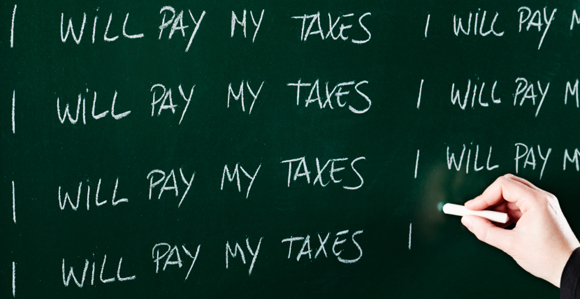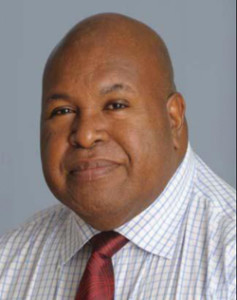Business in Papua New Guinea is now starting to focus on the looming deadlines for the country’s taxation review – a review that could have major implications for business, including the country’s resources sector.
 With the PNG Government planning for additional revenue of K585 million (US$229 million) to be collected by the PNG Internal Revenue Commission (IRC) this year, the pressure is on to improve the way the country is taxed.
With the PNG Government planning for additional revenue of K585 million (US$229 million) to be collected by the PNG Internal Revenue Commission (IRC) this year, the pressure is on to improve the way the country is taxed.
PNG’s taxation review will look at competitiveness and efficiency in PNG’s current tax system and non-tax revenues, and identify opportunities for greater fairness and simplicity. It will also look at ways of improving compliance and outline possible changes to the country’s tax mix.
The review, undertaken by a committee of distinguished Papua New Guineans headed by Chairman Sir Nagora Bogan, is being supported by the Department of Treasury, PNG Customs, the IRC and the IFC.
Taxation Review Committee members
- Sir Nagora Bogan (Chairman, right)
- David Sode (Deputy Chairman)
- Sir John Luke Critton
- John Lohberger
- Aivu Tauvasa
It will incorporate the long-awaited review of the taxation regime for the mining and petroleum industry, PNG’s most lucrative industry sector.
Submissions deadlines
Submissions to the review have been invited, with a deadline of 31 March 2014 for those on mining and petroleum, and 30 April for other submissions.
Business bodies such as the PNG Chamber of Mines and Petroleum, the Manufacturers Council of PNG and the PNG Chamber of Commerce and Industry have advised Business Advantage PNG they are currently planning submissions to the review.
‘As a community, there’s an opportunity to let government know our perception of how things work and what’s important to us. We can’t just expect them to know. We need to make sure business is taken into account.’
While he says it’s too early to anticipate the review’s recommendations, Bouke Wagenaar, Partner Taxation Services at Deloitte PNG, tells Business Advantage PNG that the Government will be looking to collect more tax from business to fund tax breaks for the masses.
Sensible rules
Instead of new taxes, an improved focus on the efficient application of existing tax rules would be desirable.
‘This isn’t a legislative issue. PNG has a lot of sensible rules but they’re not necessarily applied effectively. If they can ramp up the IRC, make it more efficient and make sure people who should be registered to pay tax are registered, that would make a big difference.’
Wagenaar says the IRC has already taken some steps to improve matters, through the introduction of new technology and an internal reorganisation, but there is a way to go before the tax system benefits fully from technology.
‘At present, the new system only covers withholding tax and only the largest tax payers are on it,’ he says.
Technology can have a downside too, however: there are concerns that automated work processes at the IRC could lead to penalties being applied much more often than is the case today.
Expert submissions
Deloitte and KPMG are just two accounting firms currently consulting with clients with a view to making their own expert submissions to the review, while PricewaterhouseCoopers has already lodged a number of submissions, according to Partner David Caradus.
Wagenaar’s advice to business people is to provide feedback to the review on the experience of complying with the current tax system:
‘As a community, there’s an opportunity to let government know our perception of how things work and what’s important to us. We can’t just expect them to know. We need to make sure business is taken into account.’
PNG’s current tax rates at a glance
- Corporate income tax rate 30%
- Capital gains tax rate 0%
- Branch/non-resident company tax rate 48%
- Dividend withholding tax 17%
- Interest withholding tax 15%
- Royalty withholding tax 10%
- Foreign contractors tax 12%
- Management fee withholding tax 17%
- Superannuation funds 25%
- Trusts 30%
- Goods and services tax (GST) 10%
Personal income tax thresholds:
- K0-K10,000 0%
- K10,000 22%
- K18,000 30%
- K33,000 35%
- K70,000 40%
- K250,000 42%
Source: The PNG Investors’ Manual, 3rd edition (POMCCI)
Tax threshold increase?
Prime Minister Prime Minister O’Neill has already flagged this week a possible increase in the tax threshold of ordinary workers from the current K10,000 (US$3935) up to K20,000 (US$7870).
‘This would be a very sensible thing to do, because the threshold is quite low compared with other jurisdictions and isn’t indexed,’ says Wagenaar. ‘It would also reduce the payroll burden on businesses employing casual workers and help deliver better pay conditions for government workers.’









Speak Your Mind